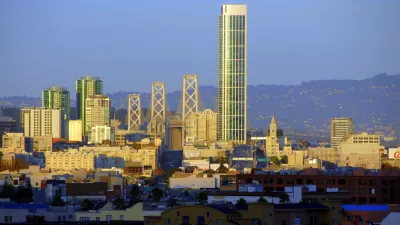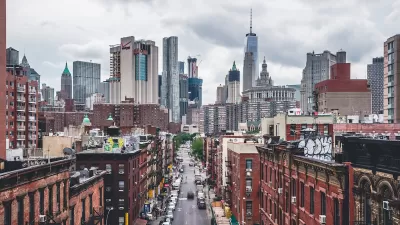Kaid Benfield investigates the rise of a more independent and nimble workforce, and ponders what the new economy means for the shape of cities as we enter an urban epoch
Benfield quotes Thomas Fisher, dean of the College of Design at the University of Minnesota, on the changes to the physical environment that a liberated workforce will demand.
According to Fisher, "The next economy, though, may look more like the way in which people lived and worked prior to the industrial revolution, in which home, office, and shop co-exist in some combination of physical and digital space. This may require rethinking our zoning laws to allow for a much finer-grain mix of uses and repurposing buildings designed for single functions that will have no tenants or buyers if they remain that way."
Benfield argues that, while cities may no longer be necessary to maximize manufacturing efficiencies, they will be essential in providing the amenities to attract and encourage the creativity (paraphrasing Richard Florida) required for the new economy.
FULL STORY: What does the new economy mean for the shape of communities?

Maui's Vacation Rental Debate Turns Ugly
Verbal attacks, misinformation campaigns and fistfights plague a high-stakes debate to convert thousands of vacation rentals into long-term housing.

Planetizen Federal Action Tracker
A weekly monitor of how Trump’s orders and actions are impacting planners and planning in America.

In Urban Planning, AI Prompting Could be the New Design Thinking
Creativity has long been key to great urban design. What if we see AI as our new creative partner?

King County Supportive Housing Program Offers Hope for Unhoused Residents
The county is taking a ‘Housing First’ approach that prioritizes getting people into housing, then offering wraparound supportive services.

Researchers Use AI to Get Clearer Picture of US Housing
Analysts are using artificial intelligence to supercharge their research by allowing them to comb through data faster. Though these AI tools can be error prone, they save time and housing researchers are optimistic about the future.

Making Shared Micromobility More Inclusive
Cities and shared mobility system operators can do more to include people with disabilities in planning and operations, per a new report.
Urban Design for Planners 1: Software Tools
This six-course series explores essential urban design concepts using open source software and equips planners with the tools they need to participate fully in the urban design process.
Planning for Universal Design
Learn the tools for implementing Universal Design in planning regulations.
planning NEXT
Appalachian Highlands Housing Partners
Mpact (founded as Rail~Volution)
City of Camden Redevelopment Agency
City of Astoria
City of Portland
City of Laramie





























